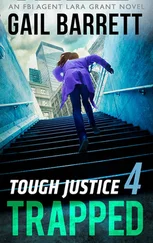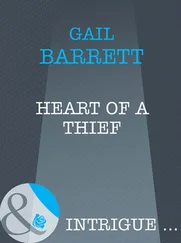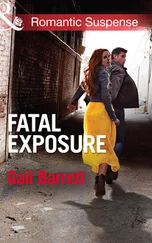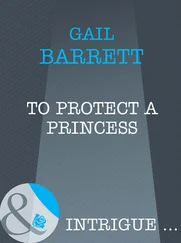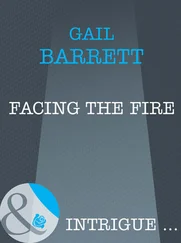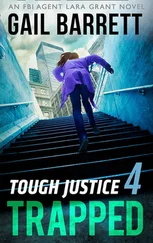“We’ll exit that way,” Amir continued, pointing toward a slot between the hills. “We’ll need to move fast. God willing, we’ll have success.”
Rasheed gave the expected response. But his idea of success didn’t match Amir’s. He’d only celebrate when he’d thwarted the upcoming attack and brought down the terrorists’ kingpin, the financier who’d murdered his wife.
Thunder drummed across the steep terrain. The wind bore down, sweeping through the wheat-colored clumps of grass, bringing with it the threat of rain. Then a movement on the trail below them caught his attention, and he aimed his binoculars that way, careful to keep the lens from reflecting the waning light. Two people, a man and a woman, came into view, both carting backpacks, both wearing jackets over their surgical scrubs.
Rasheed’s pulse began to speed up.
The man led the way. He was tall, thin, probably in his mid-thirties, with a long, narrow face and a large hooked nose. He had a short, scraggly beard, and blisters on his nose and ears, thanks to the scorching, high-altitude sun.
The woman walked beside him, her head bent, her face hidden beneath her wide-brimmed hat. Rasheed stayed stone-still, keeping his binoculars trained on her as she hiked along. Then suddenly, she raised her head and glanced around, as if sensing his scrutiny, and he finally caught a glimpse of her face.
His breath made a hitch. His heart stumbled through several beats. “That’s the target?” he blurted out, unable to conceal his disbelief.
“That’s her.”
She was beautiful. Strikingly so with high, sculpted cheekbones, delicately winged black brows and a full, lush mouth in her tawny face. Her skin was satin smooth, her lips a tempting pink. She wore her long black hair in a single braid, but the wind had worked the shorter strands loose, sending them dancing around her face. She moved with an athletic grace, hinting at a slender build beneath her coat. But it was her remarkable face that held him spellbound, making it damned near impossible to breathe.
Then she turned her head, staring straight into the binoculars, and everything inside him stilled. Her eyes were green, the cool, silvery-green of desert sagebrush or ancient olive trees. The pale color was unexpected, captivating, provoking something instinctive inside him—the primitive male urge to possess.
His ancestors would have raided for her, started wars over her, killed for her. She had the rare kind of beauty coveted by sheikhs and kings.
“Who is she?” he asked, aware he was taking a risk. Questions aroused suspicions. And he’d worked too hard to infiltrate this terror cell to blow his cover now.
But this woman...
“She looks Middle Eastern,” he added as an excuse.
Amir grunted. “She’s Jaziirastani.”
Jaziirastani? Why were they kidnapping a woman from their own country? His curiosity mounted, but Rasheed knew better than to ask. He had to bide his time, displaying the blind compliance the terrorists expected while somehow ferreting out their plans.
The target hiked across the clearing toward the tents, her movements graceful despite her pack. She dropped off the unwieldy backpack with the woman organizing the supplies and lingered for a moment to chat. He studied the tilt of her head, the elegant way she moved her hands, still wondering who she could be. Then she continued to a large, gray-and-blue tent beneath a tree. She disappeared inside, emerging a few minutes later wearing jeans instead of scrubs, and started back across the camp toward the fire.
Amir caught his eye. His checkered kaffiyeh headscarf flapped in the wind. “We have the information we need. She’s in the farthest tent. Let’s go.” He started scooting backward through the grass.
Rasheed hesitated, shooting the medical group another look as they went about their tasks, heedless of the raid that was about to shatter their night. If only he could warn them. They’d come here with noble intentions, doing their part to mitigate the misery of the impoverished farmers’ lives. And they didn’t deserve the fear they were about to suffer during the attack.
But he couldn’t risk it. He couldn’t do anything to blow his cover now, not when this mission’s success lay squarely in his hands. Because whatever these terrorists had planned, whatever the reason they’d hired a drug cartel to smuggle them into the United States, this thing was huge, rumored to rival 9/11 in scope. And it was up to him to discover their plot and stop them, no matter what it took.
The sky grew dim. Thunder grumbled again, rolling up the valley and reverberating against the terraced hills. The medical team members halted their activities and looked up. The clouds were drawing closer, their tombstone-colored bottoms growing more ominous as they dragged rain across the jagged peaks. The mules picketed beside the tents began to stir.
Aware of Amir’s impatience, Rasheed spared the Jaziirastani woman a final glance. No, he couldn’t warn them. He couldn’t risk interfering in the attack. All he could do was try to protect them the best he could while keeping his goal in sight.
* * *
If there was one thing Nadine Seymour would never understand, it was man’s propensity for violence. No matter where she’d traveled or worked—whether in glitzy New York City, in her father’s native land of Jaziirastan, or here, in the isolated mountain villages of Peru where thatch-roofed huts clung precariously to the craggy hillsides—she’d come across the same defeated women, their bodies battered and bruised, their eyes filled with hopelessness and despair.
She would never understand it. Never accept it. And she sure as hell would never put herself in a position to experience it firsthand.
“So how did it go today?”
Her lower back aching, her head throbbing from the scarcity of oxygen at fourteen thousand feet, she lowered herself beside the campfire and warmed her hands. She glanced at Henry, taking in his kind blue eyes, his sparse gray hair sticking up in disarray, the white whiskers emerging on his jaw. A retired general practitioner in his late sixties, he’d helped organize this trek along the ancient Inca trade routes to the tiny hamlets scattered throughout the peaks—places where there was no electricity, no running water, no medical service or phones. Just unrelenting misery and abuse.
“The same as always,” she said, releasing a sigh. “Parasites, basal cells, some battered women and kids.”
“Did many people show up?”
“Yeah, we missed you.” Their small team—two doctors, two nurses, a pharmacist and an interpreter who doubled as their cook, mule tender and guide—had been traveling in the Andes with Medical Help International, a private charitable organization, for over a month now, in areas so remote some villagers had never seen foreigners before. But despite the isolation, word of their impending arrival had spread, and people had straggled into their makeshift clinic all day, standing patiently in line for hours, and paying with whatever they could—food, blankets, coins, even an occasional chicken or bird. Twelve hours later, the last few patients had finally left, their prescription drugs tucked into their unkuña carrying cloths, hiking in their tire-tread sandals back to their potato farms and alpaca herds hidden in the ravines creasing the hills.
“The violence is always the worst.” Her voice hardened at the thought. These people had a tough enough time simply trying to survive. Not only did they battle poverty—including a disheartening lack of basic amenities—but they faced danger from the drug runners smuggling coca north into Brazil and Colombia, destined for the markets in the United States. They didn’t need the added terror of domestic abuse. “I’d like to find someplace it doesn’t exist for once.”
Читать дальше




